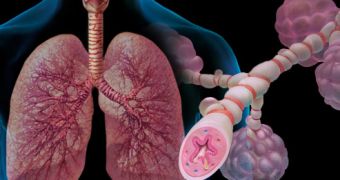An investigation carried out by researchers in Denmark has found that children born to mothers who were exposed to persistent organic pollutants during pregnancy are more likely to be diagnosed with asthma by the time they reach the age of 20.
The organic pollutants that the specialists focused on are known to the scientific community as hexachlorobenzene (HCB, for short) and polychlorinated biphenyls (PCB).
Scientific American details that PCB was banned back in 1977. However, it was widely used in the process of manufacturing electrical equipment for decades before the ban was instituted, so noteworthy amounts of it managed to work their way into the environment.
HCB, on the other hand, was intensely used as a pesticide until the year 1965, when it too was banned.
Despite no longer being used in agriculture, HCB nonetheless continues to be released into the environment as a byproduct of several industries, the same source details.
These chemicals take a fairly long time to degrade, and tend to build up in the bodies of both humans and animals. People more often than not become exposed to them by eating fish, specialists say.
The researchers in Denmark explain that, as part of their investigation, they tested the makeup of blood samples collected from 872 women, and later on kept a close eye on the health of their offspring.
It was thus concluded that, when compared to mothers least exposed to said pollutants, the women whose bodies contained the highest concentrations of HCB and PCB-118 were twice more likely to give birth to children who developed asthma between their 6th and 20th years of life.
Other forms of PCB were also found to up asthma risk, only not as much as PCB-118 did.
The researchers theorize that these persistent organic pollutants make individuals more vulnerable to asthma due to the fact that they harm the immune system while this is still developing.

 14 DAY TRIAL //
14 DAY TRIAL //